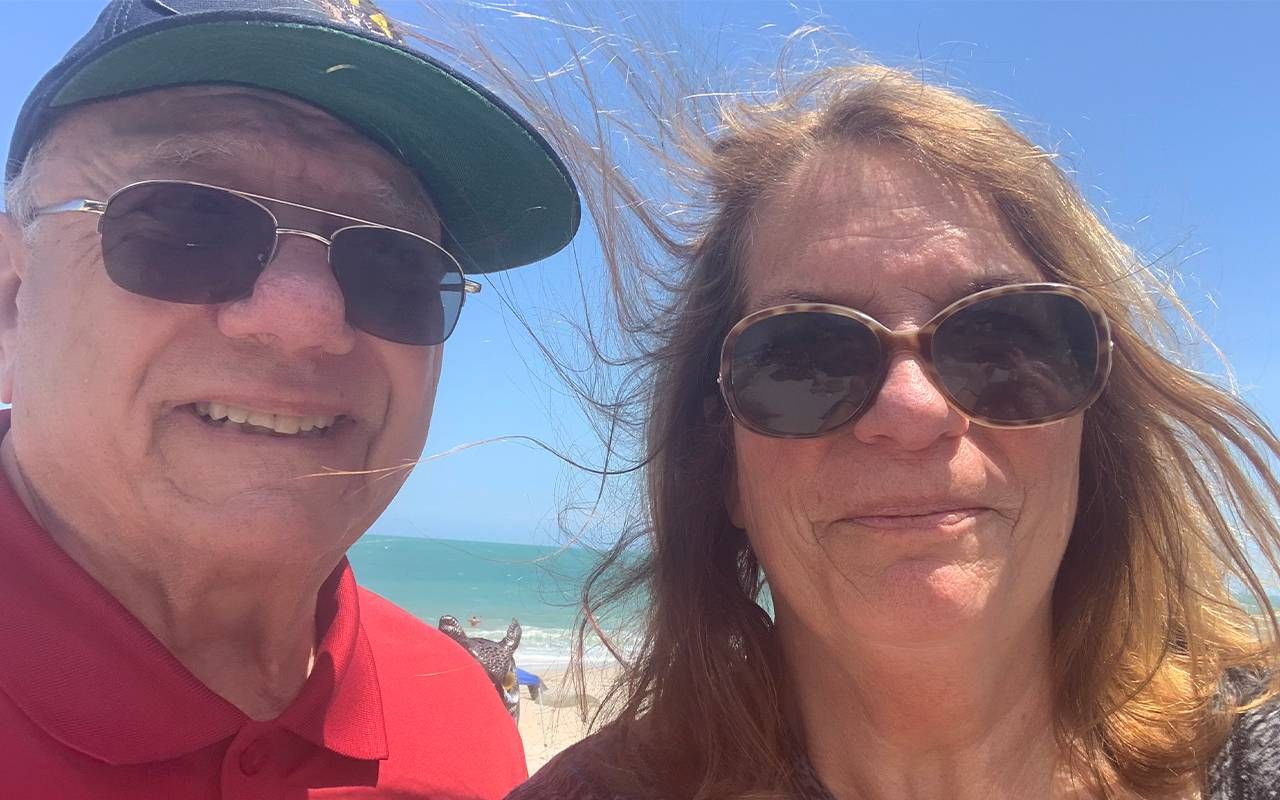Traveling with Dementia
Traveling with someone you love who's living with dementia can seem daunting, so advance planning is essential
Jan Dougherty has written a book on the topic and says even doctors questioned her when they knew she was writing about dementia and travel. She says often, "Physicians aren't even asking caregivers if they're planning a trip" because it doesn't occur to them that the caregiver, or the person living with dementia, could do such a thing.

"Staying connected to those family and friends who are still familiar is really important."
But it happens all the time. Dougherty, a nurse and longtime dementia care expert based in Arizona, says travel can still be rewarding for everyone involved. "Long-term memory is what's most robust in people as they progress over time," she says. "So staying connected to those family and friends who are still familiar is really important."
Still, she says too many people hit the road without adequate preparation. She wrote "Travel Well with Dementia: Essential Tips to Enjoy the Journey" as a guide for families who still want to go places.
Communicate Ahead of Time
To have a successful trip, planning and communication are essential. The person with dementia will likely have changed since family members last saw them. If you're doing a friends and family trip, Dougherty advises letting everyone know what to expect regarding the person's health and behavior.
Otherwise, stress and misunderstandings can quickly erupt. The caregiver can find themselves bombarded with questions or comments about why their loved one refuses to wear a jacket for his niece's wedding and insists on wearing a Hawaiian shirt instead.
The caregiver can find themselves bombarded with questions or comments about why their loved one refuses to wear a jacket for his niece's wedding and insists on wearing a Hawaiian shirt instead.
Also, ask for help when you need it – but be specific. Dougherty says a typical scenario is a family trip where a grandmother will take a husband who has dementia to a vacation spot and invite a young relative like a granddaughter to come along as backup.
"But she doesn't communicate with the granddaughter how she needs her to help with Grandpa," says Dougherty. "So the granddaughter is sitting out by the pool having a great time ordering drinks," while the grandmother is fuming, worn down by keeping an eye on her husband.
She says family members can avoid this kind of outcome by articulating what kind of assistance they need and how often before the trip. Those who want to relax can hire a professional travel companion to accompany them and a loved one while they're away.
Dougherty points to companions as a small but growing service. It's not cheap, but she says, "With a travel companion, it's pretty darn clear: they're hired specifically to companion this adult who needs added support."
It's All in the Planning
Terry Burger of West Hartford, Connecticut, met her husband Skip when he was in his fifties. Now 75, he has Alzheimer's. A former Navy man, he has always loved to travel. They no longer go abroad, but Burger makes sure they still take trips within the U.S. She now spends about a week ahead of time planning so she'll be prepared for anything.
"We don't cram as many activities in a day as we used to because he tires out easily."
First, there's deciding what to pack: in their case, plenty of pull-ups, including swim-proof ones, since her husband has urinary incontinence. Then there are the pet bells she hangs on the doors of hotel rooms and timeshares to alert her in case Skip tries to leave the room at night.
For the flight, she packs a deck of cards, a coloring book, pencils and magazines - including his favorite, National Geographic. She plans enough activities to keep her husband engaged while they're away. "We don't cram as many activities in a day as we used to because he tires out easily," she says.
Getting Through the Airport
Burger always books a nonstop flight and a wheelchair for the journey through the airport. Through the traveler support program, TSA Cares, she lets the airport know she is traveling with someone with a disability.
The program can provide a passenger support specialist to help the person and their companion through the security screening (TSA Cares asks passengers to request assistance at least 72 hours before their flight).
Also vital: bathrooms. Burger researches where the family bathrooms are ahead of her arrival at an airport "so you don't have to go searching" at the last minute. Dougherty adds that most family (mixed sex) bathrooms are located before you go through airport security.

She says anyone who needs to help someone of the opposite sex in a single-sex bathroom can announce themselves as they enter with a quick explainer: "I'm Paul, my wife has Alzheimer's disease, and I need to help her in the bathroom."
"People get it," she says. "It's the pre-announcing that becomes really important."
But airports can be chaotic, loud and confusing, far from ideal for anyone living with dementia. Steven Barbieri knows this firsthand. Now 62 and living in Idaho, he discovered a decade ago that he had CTE (Chronic Traumatic Encephalopathy) dementia. That news fueled his desire to see the world.
"I didn't put my life on hold," Barbieri says. "I hit the fast-forward button. I want to get all that traveling in now while I can, physically and mentally." He and his wife, Tracy, travel within the U.S. but also abroad at least twice a year. Airports are a big part of their lives.
Their tips? Once you're through security, find somewhere quiet to escape the hubbub. This is vital to Steven since his brain can't process the noise from all directions. They try to find a quiet cafe to sit and play cards or an empty gate close to theirs.
They'll sit there while waiting to hear their flight's boarding announcement. They always alert airline staff at their entrance about Steven's condition so they can pre-board the flight and he can settle in before the crowd surges on.
Taking Stress Off the Caregiver
The Barbieris decided years ago that booking a tour was the best way for them to travel overseas. Recent tours have taken them to Egypt, Croatia and Scotland. Tracy says much of this is down to her: an organized tour takes pressure off the caregiver.
"Now it's my turn to show him we can still travel. It's different, but we make the most of it."
Near the trip's start, she quietly lets the tour guide know that Steven is living with dementia. "It's not Steven's choice to tell other people on the trip because he is fearful that they're going to look at him differently or treat him differently, but for me it's peace of mind that I have another set of eyes on him," Tracy says.
The agenda for the next day is pinned to a poster in the hotel lobby, and there's information in writing about all aspects of the tour. Steven says he always takes a photo of this to keep referring to it rather than ask his wife repeatedly what they're doing.
"Photos are like my second brain," he says. They provide him with reminders of not only the sights but of everyday things like his hotel room number. Steven needs more downtime than the average tourist, so the Barbieris book tours that include days free of scheduled activities.
"During that free time, I may rest or just stay local so that I'm not having to go out [into a busy city], and my mind's not getting so engaged," he says.
Tracy says traveling with a tour group also helps their relationship, freeing her up to enjoy the travel experience with him rather than being chief planner, tour guide and explainer herself – all of which can leave her frazzled.
Like the Barbieris, Terry Burger plans to keep traveling for as long as she and Skip can. For her, a trip to Florida or South Carolina is a welcome break from the routine of running the house and paying bills.
"Do I miss the way our trips used to be? You bet I do," she says. "He used to plan our adventures and do all the driving."
Today, she does everything. But it's worth it. "That man of mine showed me the world in our travels," Burger says. "Now it's my turn to show him we can still travel. It's different, but we make the most of it."


